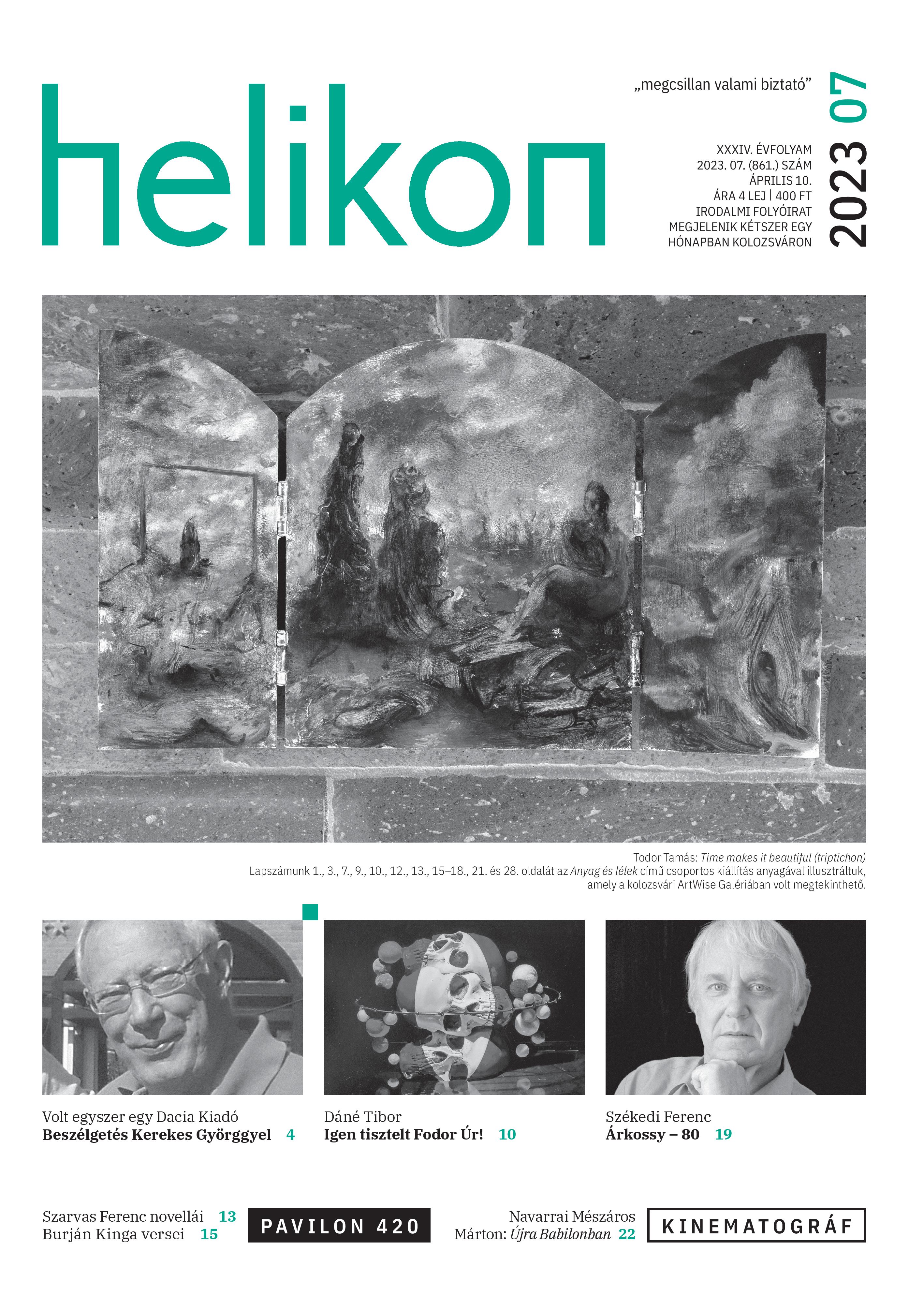
We kindly inform you that, as long as the subject affiliation of our 300.000+ articles is in progress, you might get unsufficient or no results on your third level or second level search. In this case, please broaden your search criteria.


Review of: Molnár Vilmos: Kőrösi Csoma Sándor csodálatos cselekedetei – Rendhagyó legendárium. Corvina, Budapest, 2021.
More...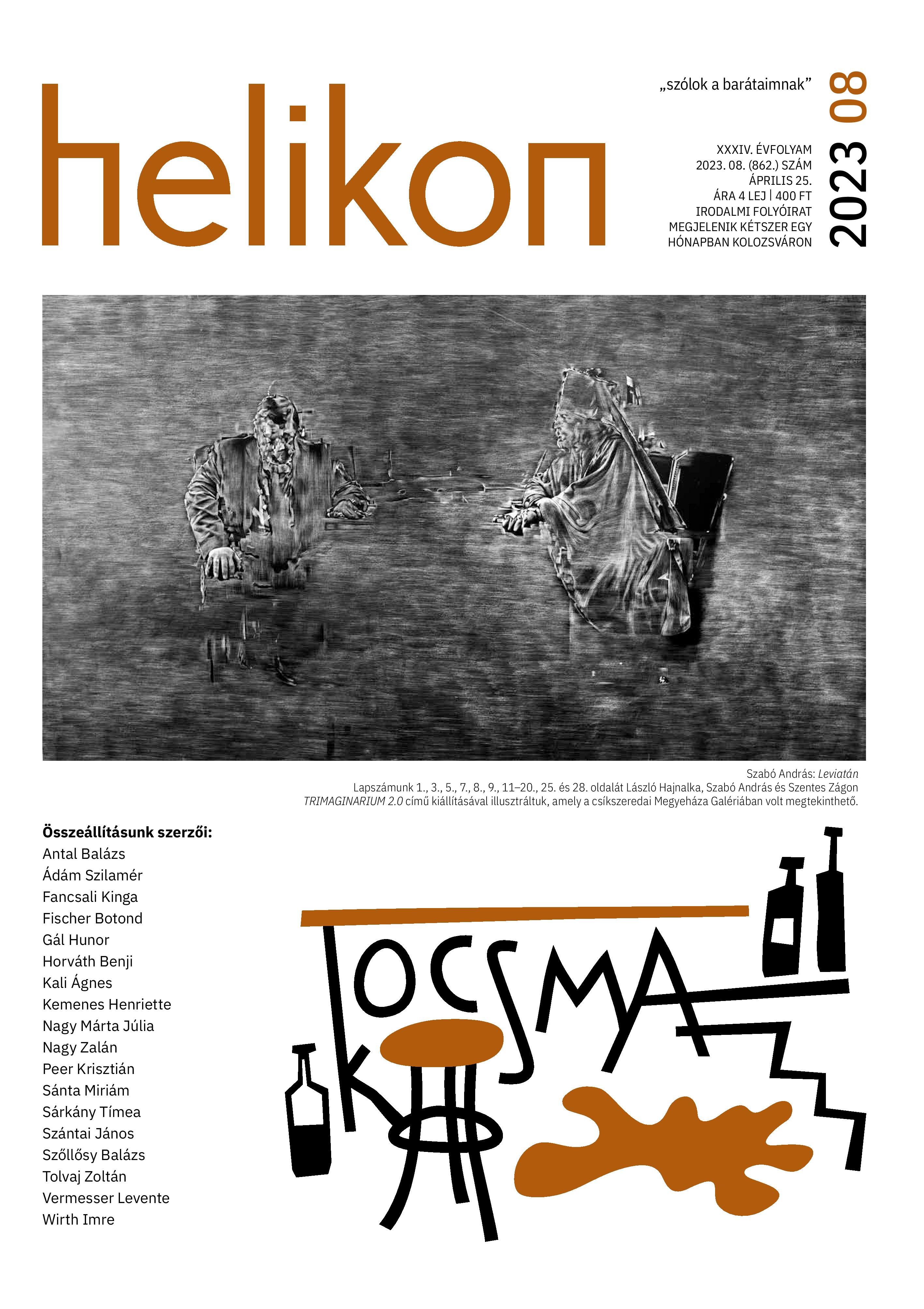
Short story by Levente Vermesser: "A kávéba adagolt konyak találkozása az irodalommal és egyéb hangsúlyos esetek"
More...




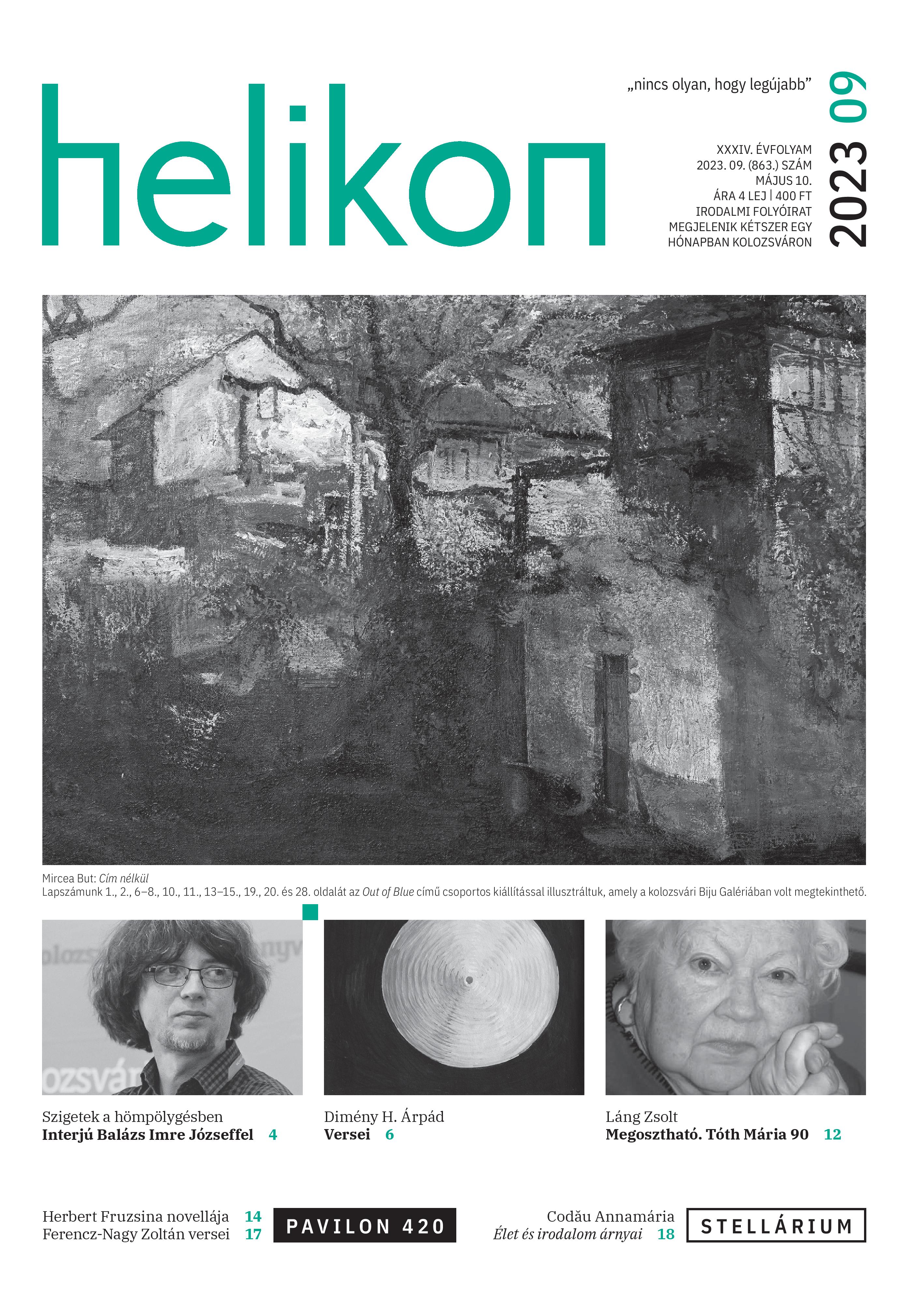
Demeter Zsuzsa's interview with poet and literary historian Imre József Balázs.
More...

Short prose by Urmuz, translated by Imre József Balázs: "Stamate és a tölcsér".
More...



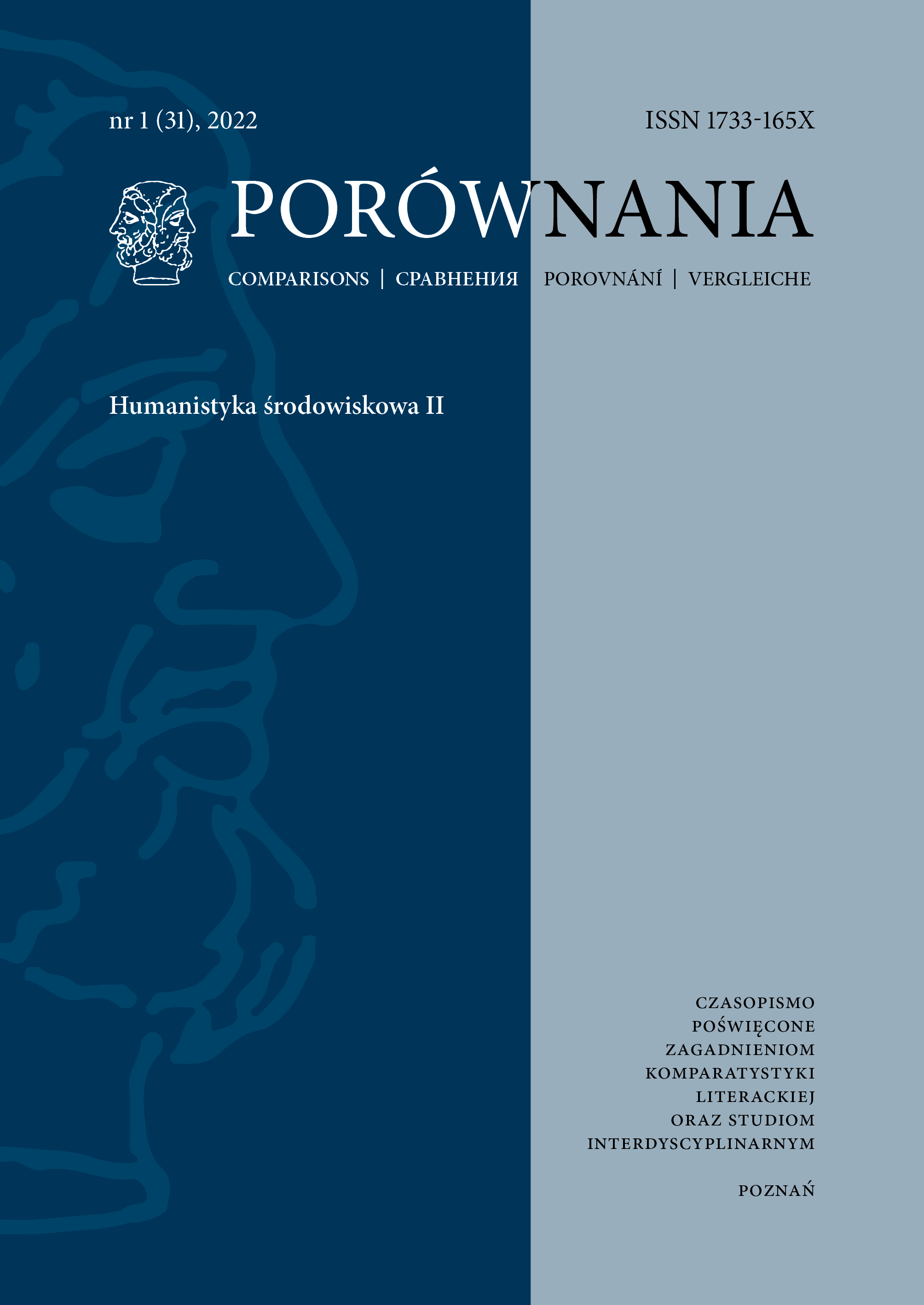
In contemporary Hungarian literature, an increasingly important role is played by post-humanist-anthropocene forms of literary expression, the starting point of which is biological operations performed on the body. The bodily transformations that change the anthropological and evolutionary picture of man are accompanied by new biological constructs and power relations, as a result of which animal life forms acquire hybrid identities. Three Hungarian novels are discussed in the work: My Hero’s Square (2000) by Lajos Parti Nagy, A patkány éve [Year of the Rat] (2013) by Imre Bartók, Irha és bőr [Hide and Skin] (2019) by Anita Moskát. Their analysis is set in the context of posthumanism, ecocriticism and postmodernism.
More...
Migration is one of the most momentous existential experiences of modern man. It is a change that has serious consequences for the individual, regardless of whether it is accompanied by coercive (political or economic) motivations or it is voluntary. In both of these cases, the process of adaptation in a new place may turn out to be a difficult and burdensome task for the individual. What is more, it can also affect the next generations. Children of migrants often struggle with the same problems that their parents or grandparents had to face. The fact that the functioning between two cultures, languages and traditions can turn out to be literally prolific is evidenced by the work of writers of Hungarian origin who live and work outside their country of origin. This article examines the work of three such authors: Terézia Mora and Ilma Rakusa, who write in German, and the Anglophone author Charlotte Mendelson. Each of them thematizes the issue of migration in a different way and uses different solutions at the level of the structure and the narrative of their works.
More...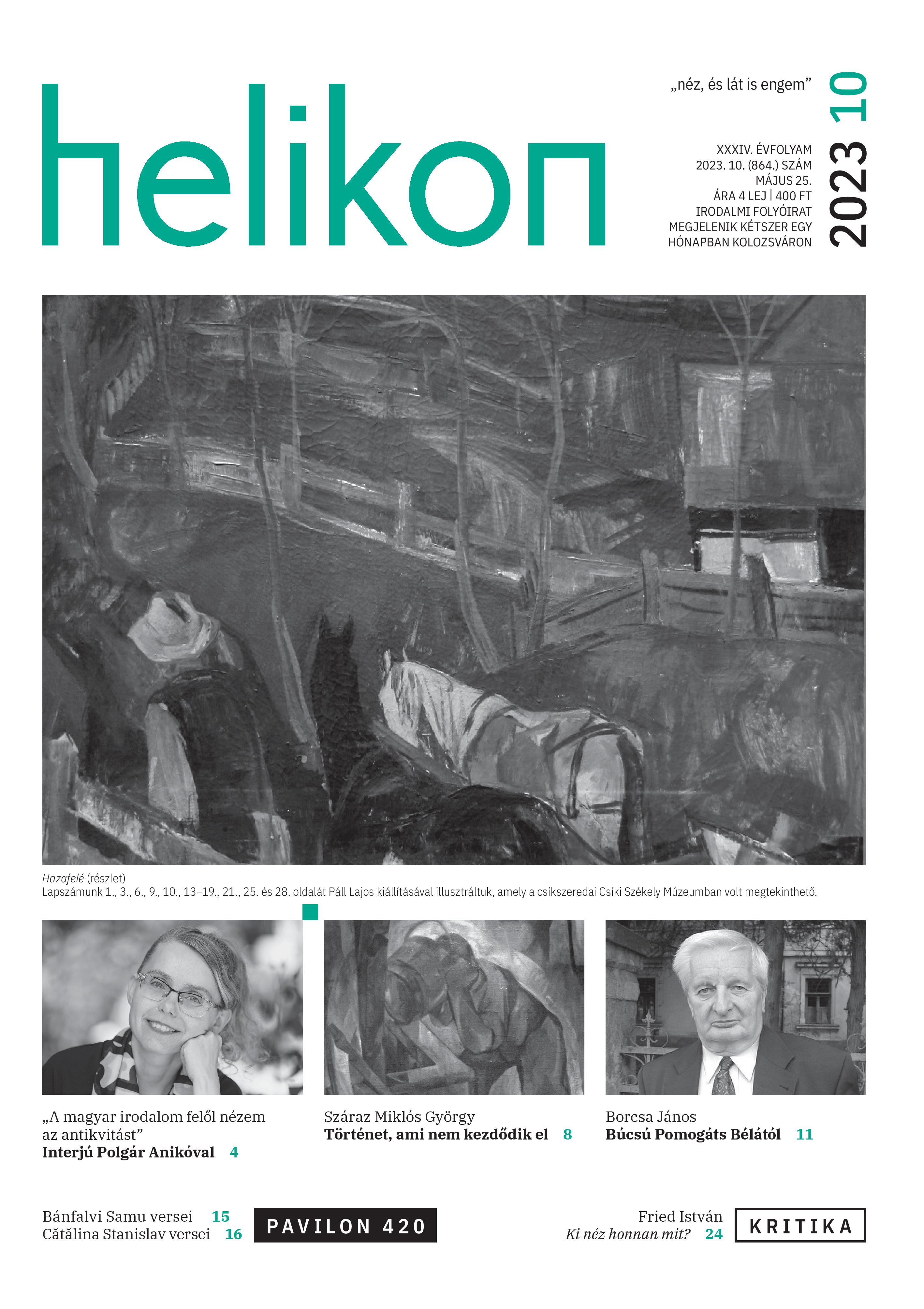
Essay by Réka Fazakas discussing the poetry of Samu Bánfalvi.
More...
